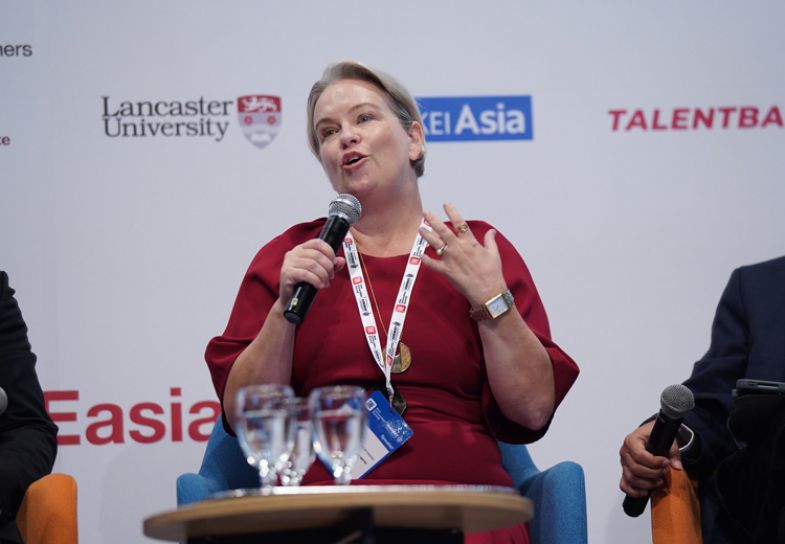
Cultural differences can present universities with unique challenges in transnational education. By fostering an open dialogue with host nations, institutions can better understand each other’s values
Values are a lodestar for a university’s mission and strategy, steering its identity, decisions and interactions with the wider world. Understanding how values can be translated in different regional settings is an urgent question for universities expanding their campus footprint to new territories. At a round table hosted in partnership with the University of Nottingham Malaysia at the 2024 THE Asia Universities Summit, industry leaders in the region discussed the common challenges faced in transnational education.
Kylie Colvin, chief strategy and operations officer at the University of Nottingham Malaysia and co-chair of the UK International Campus Alliance Network (UK-ICAN), opened the session by highlighting the ongoing challenge in applying the university’s values in diverse cultural contexts. To overcome this challenge, it is important to comprehend how various stakeholders interpret the institution’s values, said Colvin. She emphasised that this challenge also presents an invaluable opportunity for learning from the host culture. Colvin highlighted that integrating local priorities would enable transnational education providers to effectively navigate cultural nuances and accomplish their objectives.
Simon Guy, pro vice-chancellor of global for digital, international and sustainability at Lancaster University and co-chair of UK-ICAN, said that difficult conversations about “red lines” should begin at home. Universities should be bridge-builders, establishing a “community of communities” to create a positive impact in the wider world, Guy said. Operating in host nations with different values might require sensitivity around some issues but there remain opportunities for institutions to embody their core values.
This is Lancaster University’s approach to developing an EDI strategy on its campus in China. “Rather than not have an EDI strategy and not talk about it, we are trying to use it where we can,” said Guy. “We are working with our staff around gender equality. We are working with our students around disability.”
The panellists spoke about the need to innovate while respecting the political reality in different countries and improvising to implement university values as best they can. As definitions of values vary from country to country, they cannot always be translated like-for-like. However, by having an open dialogue between all stakeholders, institutions can find common ground, the panel agreed.
However, international perspectives can sometimes augment values for the greater good. Accounting for regional cultural preferences can encourage buy-in to a broader goal, argued Priya Sharma, director of Principles of Responsible Management Education (PRME) at Monash University’s School of Business in Malaysia. “If you look at PRME, it started off being very American-focused,” she said. “But now it is opening up a lot of regions globally. If such values are to be implemented globally, then the regions have to come aboard as well.”
Establishing closer links with regulators can help build the trust and understanding that is critical between a university and its host nation. Trust is essential for innovation, collaboration and for a university to make a case for its values – be they in issues surrounding gender equality, LGBTQ+ rights or teaching methodologies. Often cultural sensitivities can be navigated through sensitive diplomacy, the panel concluded.
Find out more about the University of Nottingham Malaysia.
